The example of authoritarian, police-based neoliberalism is already spreading to other countries in the continent.
The example of authoritarian, police-based neoliberalism is already spreading to other countries in the continent.
By Fernando Esteche, Buenos Aires / Argentina
When we define the four main vectors by which the imperialist mode of production is reproduced, we indicate that they are: financialization, militarism, chaotization and narcotization.
To a different extent and according to the contexts, some of these vectors sometimes become clearer than others. But in general, one can always find them present.
In Latin America there are several essays and lines of work for the reproduction of the political overdetermination of countries by imperialism. They range from neo-coups, classic coups, transformist progressivisms, new right-wingers, etc. Among all these will appear a form of state management, of government administration, which, noticing the retraction of the social base of liberal democracy, operates the articulation of a device of domination, of social control, which we call authoritarian police neoliberalism.
We might think that this is an isolated essay, of extraordinary situations that arise in a given state and that such contingency is resolved with states of exception, but we note a common line of work, of exchanges of doctrines of social control, of penitentiary and judicial policies, with similar punitive matrices, which will account for a profile put into operation for the peoples of Our America.
El Salvador first, later Ecuador, with some symptoms that are beginning to take shape in Argentina, account for a logic of neoliberalism’s power production within the framework of narrow-based neoliberal democracy.
It is precisely the deception of the democratic promise that makes possible the emergence of this type of proposal to the extent of a cultural and political overdetermination of the Latin American elites.
El Salvador: Illegal powers that legalize a constitutional dictatorship
El Salvador was a pioneer in the establishment of what we could call a democratic state of exception, if it were not for the fact that political production in that country is already normalized in that authoritarian police logic, where Montesquieu’s republican trident was assaulted by a growing concentration of power on the part of the president.
Early in 2021, the right-wing president who made his political career in the leftist Farabundo Martí National Liberation Front (FMLN), sent an order to the Legislative Assembly to dismiss and replace the Constitutional Chamber of the Supreme Court of Justice. Violating the procedures established in the battered National Constitution, the Constitutional Chamber and the Supreme Court of Justice, presided over by an unconstitutionally elected person, are bodies vitiated by nullity that are only legitimized by the executive branch.
The three branches of government today are at odds with constitutional terms, starting with the illegality of Najib Bukele’s re-election. The same with the elected deputies.
Now that is just a postcard of the articulation of the devices of administration of governmental power. What we must point out is the increasingly authoritarian practice with the excuse of “citizen security”. Faced with a real problem that plagues Mesoamerica, such as the structures of violence related to different forms of crime, a social control device began to operate with the precedent already experienced throughout the continent of the pandemic and that practiced real pogroms against the impoverished youth population.
About 2.5 percent of the population is imprisoned, being the highest incarceration rate in the world, if we put this rate in terms of the economically active population, the figure becomes appalling.
The latest records published in March registered 327 cases of forced disappearances, about 80 thousand arbitrary detentions, with a total of approximately 109 thousand people deprived of liberty; a situation of prison overcrowding of approximately 150%, and at least 235 deaths in state custody in the first half of the year.
Political repression against forms of popular organization is the order of the day, with the unions related to the state suffering the most, although not the only ones, where it is practiced from wage repression (non-payment of wages) to imprisonment of leaders and mass layoffs, such as the closure of organizations that immediately leave employees without work.
While the government ponders its war against gangs, the truth is that the homicide rate has not dropped significantly. Drug trafficking advances by colonizing the State. And the State has become a space where their responsibilities have been parceled out among the bourgeois mafia groups in order to appropriate fiscal resources, for which as they are consolidated, they are dismantling the few social coverage institutes.
Ecuador carried out an operation of chaotization and narcotization
The seizure of a TV channel, the university, and the prisons offered conditions for President Noboa to declare a “state of exception” and “state of internal armed conflict,” empowering the Armed Forces to operate internally, in the midst of the suspension of constitutional guarantees.
The irruption of a dozen poorly armed and poorly organized boys on TV, and of many others in the university, facilitated and accelerated the creation of conditions that pushed Ecuador at the doors of American “aid”. The fact that these children are poorly armed and poorly organized does not mean that Ecuadorian crime is reduced to these episodes. But it shows the set-up, which operates as a necessary excuse, for the change in the nature of the rule of law.
It was about a few dozen boys enlisted in criminal gangs with no greater prospect or claims than to wield their capacity for violence. Murdering prison guards in front of the phone footage for no reason, far from relating them to the worst “political-military” practices of some Mexican cartels, some Venezuelan counterrevolutionary guarimbas, or Daesh, show them as practitioners of inconsequential and senseless violence.
Here the so-called Bukele “package” becomes important, which was Noboa’s campaign workhorse, and has been worked on during these times of government with official Israeli assistance, experts in confinement and torture.
The colonization of the State and Ecuadorian politics by organized crime (financed by it) is increasingly undisguised evidence.
The assassination of the presidential candidate who had been denouncing the state’s co-optation by organized crime, Fernando Villavicencio, was the corollary of a succession of crimes against political leaders such as the mayor of the port city of Manta, or Pedro Briones in Esmeraldas, on that same coast, a Correista leader; as a demonstration of the forces of criminal gangs in the face of an undaunted and impotent State and political system.
But to try to understand the genealogy of criminal violence in the country, we must first consider some issues that favored this situation.
Ecuador borders the large coca producers, Peru and Colombia; it has the Pacific ports and the road network in the best conditions in the region.
The dollarized economy facilitates laundering operations; the deregulation of foreign trade that makes smuggling possible (customs and ports are private); the counter-criminal intelligence apparatus was disarmed by Lenin Moreno, as was the Ministry of Justice that administered the prison service.
The country’s gangs became more sophisticated and gained organization and complexity. They control a range of criminal economies.
Today the country is a financial platform fed by funds from drug trafficking and gold smuggling, from human trafficking, and other criminal activities.
The disarticulation of the state operated by Lenin Moreno first and Guillermo Lasso later, facilitated the infiltration and colonization of institutions and politics by criminal gangs. That is, criminal penetration into the state apparatus, the police, the judiciary, the attorney general’s office, and the executive branch.
In the midst of the pandemic, there were terrible and tragic prison revolts that exposed the impotence of the state and the criminal control of the prison system. It was at that time when an important leader of the largest criminal gang of the time was assassinated and where many will find the reasons for the gang explosion. We will argue that this explosion is more likely to have to do with the different roles and disputes for spaces of power that different groups begin to play in the various stages of production, transport, and marketing, in the case of drugs.
It should be pointed out, in order to understand this phenomenon, that these are generally gangs with terminals in larger criminal organizations abroad such as the Sinaloa Cartel and the Jalisco New Generation, and that they use these gangs as executors in Ecuadorian territory. The same with European and even Australian criminal groups.
When we talk about institutional colonization, we are sustaining criminal penetration in the state apparatuses themselves, police, justice, attorney general’s office, and executive branch.
The “crossed death”, aconstitutional mechanism by which Guillermo Lasso’s resignation was precipitated, has to do with complaints that expose the relationship between the Albanian mafia and the presidential entourage.
The withdrawal of the State from social containment due to neoliberal adjustments was quickly replaced by the different criminal networks. Young people between 18 and 25 years of age have no other possible destiny than to enroll in criminal militancy that not only ensures them an income and a social role, but also resolves the police control of the territoriality that dominates, and the assistance to widows, relatives of prisoners, and the sick who may need it. On the state side they only receive expulsion, contempt and persecution. It is a perfectly applied tragic equation.
Ecuador is today a very important cocaine distribution center for the United States and Europe. In Europe, large shipments of cocaine have been discovered disguised in shipments of bananas, precisely bananas is the commercial item of the current president Daniel Noboa.
The disarmament and transfer of the Colombian insurgency left a power vacuum and a terrain to occupy on the border with the country, which was quickly occupied by criminals.
The consolidation of Europe as a consumer market also has an impact on the importance of Ecuadorian ports and also explains the presence of mafias such as the Albanian one.
The liberalization of trade between Ecuador and the European Union, starting with the 2016 free trade agreement, not only increases the flow of commercial transport, but controls become more labile, facilitating criminal operations.
Obscene landing of the Southern Command
A few weeks after what was intended to be the paroxysm of chaotic in Ecuador, with the events of the takeover of the TV channel, University and prisons; General Laura Richardson, head of the Southern Command, arrived in the country, accompanied by the Special Presidential Advisor for the Americas, Christopher Dodd. This high-level delegation evidenced the support and willingness of the United States to help the Andean country.
They announced a security plan for Ecuador with a duration of five years, a kind of micro plan Colombia, where the northern country undertakes to finance equipment, logistics and various weapons for the Ecuadorian police forces.
The agreement provides for deepening bilateral cooperation in security, anti-drug cooperation, migration and economic development.
In the post-Correismo period, the different governments of Ecuador rushed to resolve the growing requirements of the Southern Command, which quickly resolved, in a diplomatic offensive of cooperation, to replace its presence in the country from the dismantled Manta base, to directly control the country’s high command, equipment and military logistics.
It should be noted that huge investments and efforts in military cooperation that resulted in millions of dollars arriving in Ecuador, resulted in the exponential growth of a criminality such as Ecuador did not know.
During the period 2021-2022, Ecuador was the largest recipient of U.S. military aid with the transfer of 172 million dollars.
Ecuador replenished its shipments of military contingents to train in the United States in the successor of the School of the Americas, which since 2001 has been called the Western Hemisphere Institute for Security Cooperation (WHINSEC).
El Salvador and Ecuador also participate in the training of police, prosecutors, and judges provided by the United States at the International Law Enforcement Academy (ILEA) located in El Salvador.
Both the WHINSEC in the operational dimension and in the adequacy of functional conflict hypotheses to the Southern Command, as well as the dependence on it; such as the ILEA in the construction of police and judicial devices of social control, construction of order, and political overdetermination of Latin American nations; with U.S. and Israeli instructors, they are the platforms for homogenizing and operationalizing the long lines of U.S. redeployment in Latin America.







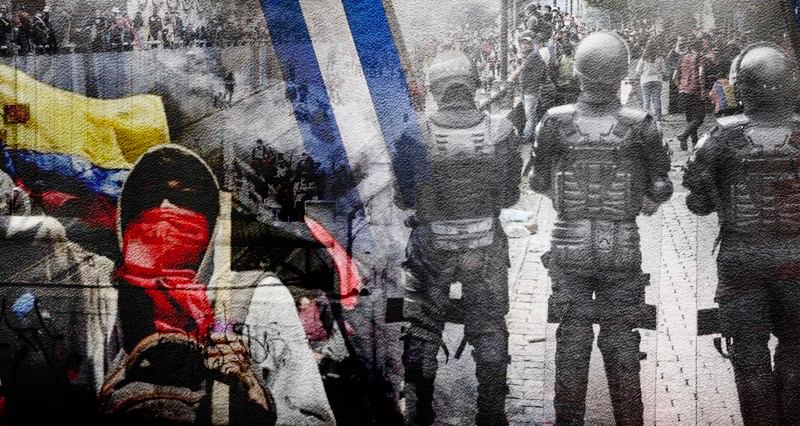
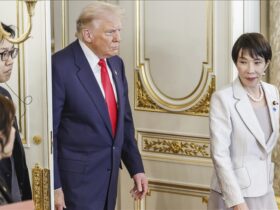
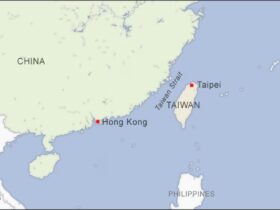
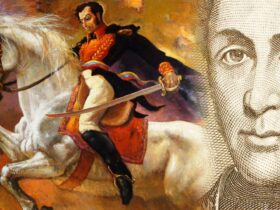
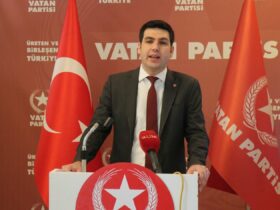
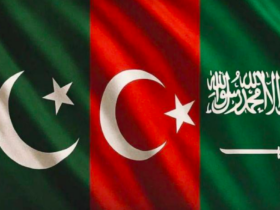
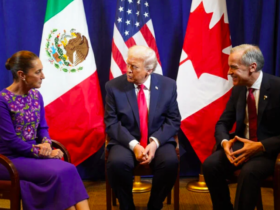
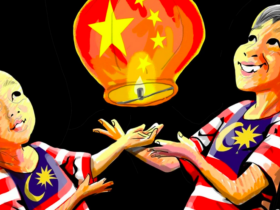
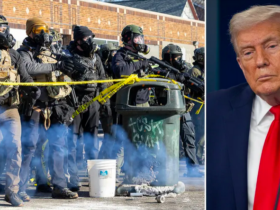

Leave a Reply